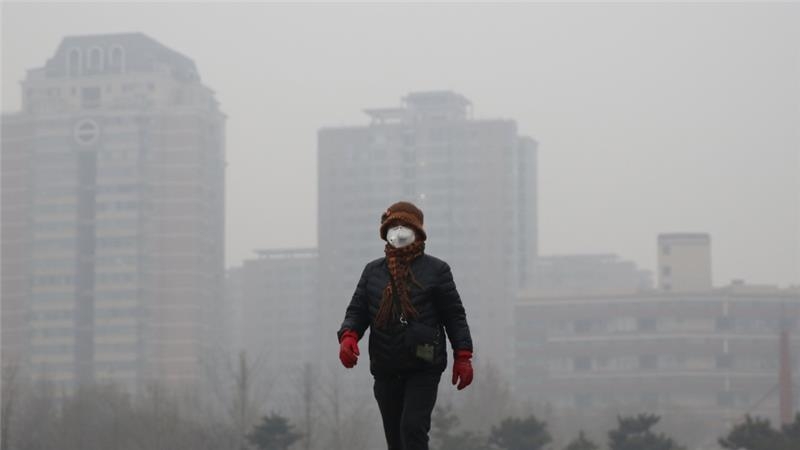
AKIPRESS.COM - Mongolia will continue to battle its severe air pollution even as funds to clean up Ulaanbaatar’s toxic atmosphere have been diverted to fill a widening budget gap, Bloomberg Quint said referring to the country’s environmental chief.
“Every year 30 billion togrog ($12 million) is collected from car owners, coal users and others who contribute to air pollution,” Oyunkhorol Dulamsuren, minister for environment and tourism, said in Ulaanbaatar. “This money should be used to combat air pollution but it is being used to fill the budget deficit. It should be spent only for air pollution but it’s not like that.’’
Air pollution in the world’s coldest capital can reach extreme levels in winter when residents in “ger’’ districts, or unplanned neighborhoods unconnected to central heating, burn through large stores of raw coal to stave off sub-zero temperatures. Coal-burning power plants and vehicles idling in long traffic jams also contribute to the noxious air. The coal smoke has led to an increase in miscarriages, respiratory ailments and cancer.
The budgeted amount of spending from the Clean Air Fund has been lowered to a more realistic amount of 5 billion togrog for 2017, said Oyunkhorol.
The more conservative spending comes as Mongolia enters a period of austerity following years of overblown budgets. The deficit has more than doubled this year to $1 billion while the economy contracted 1.6 percent in the first nine months. The government is seeking economic lifelines from foreign lenders, including the International Monetary Fund and China.
Despite tightened budgets, Oyunkhorol continues to seek measures to decrease the burning of raw coal.
Fuel-Efficient Stoves
Small business will be given tax incentives to produce fuel-efficient stoves. Government subsidies are planned to lower the cost of processed coal briquettes, which emit lower amounts of harmful particulates compared to raw coal. The nighttime tariff on using electricity has also been slashed by 50 percent to encourage families to heat their homes with electric heaters.
Roughly half of Ulaanbaatar’s 1.3 million people live in a ger district, said Oyunkhorol, adding that her government will continue with long-held plans to modernize the ger areas with piped infrastructure and low-cost apartment blocks.
The city burns 5.9 million tons of coal per year, with around 90 percent consumed by power stations and the remaining 10 percent burned in the ger districts, said Oyunkhorol. Despite the relatively small use of coal by private individuals, ger districts are the source of 80 percent of the air pollution.
The particulate matter most dangerous to humans, known as PM2.5, can reach more than 1000 in the densely-packed ger districts on the north side of Ulaanbaatar. Safe levels are 50 or under. A 2013 study conducted by Simon Fraser University attributed 10 percent of deaths in Ulaanbaatar to poor air quality.
“We should improve public transportation and biking, we need some PR to get people to embrace a healthier lifestyle, to get them out of their cars,’’ Oyunkhorol said.
Climate Change
Mongolia has a vested interest in lowering its carbon emissions and encouraging big emitters such as China and the U.S. to do the same.
Climate change caused by carbon emissions has played a role in altering Mongolia’s eastern steppe ecosystem, where 120 of 200 rivers have dried out, according to Oyunkhorol. Critics such as Donald Trump, who’s called climate change a hoax, need to pay more attention to small countries like Mongolia that are suffering because of global warming.
“Climate change is a big concern right now and Donald Trump should not be denying it,” she said. “It’s a global issue. It is drying out the rivers on Mongolian territory.’’
